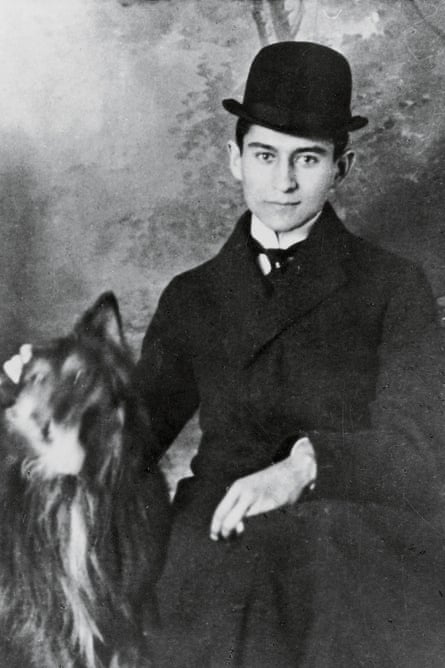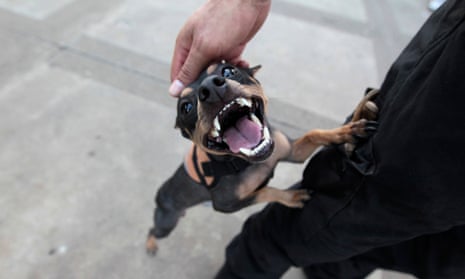Man created dog, or dog created man, about 30,000 years ago somewhere in east Asia. Dogs witnessed us when we were still part very much part of the animal kingdom, marginal creatures foraging for a living, before we had stone tools, before we mastered agriculture, invented money, built cities, and polluted the earth. Dogs are like a first lover who knew us when: they know where we really come from, and who we really are.
They have shared our hearths and meals and affections for longer than any other animal. A 12,000-year-old grave in Israel contains the skeleton of a woman holding the skeleton of a puppy. We have even shared death with them. How could they not make their way into our imaginations?
While dogs have been bearing witness to our behaviour for 30,000 years, we have also been closely observing them. We are their first loves, too. We knew them when they were still wolves, before they tasted kibble, had their nails trimmed and their teeth brushed.
In my novel, Heroic Measures, one of the points of view belongs to Dorothy, a 12-year-old dachshund who stands 12 inches tall and weighs 10lb 2oz. Entering her consciousness seemed no different to me as a writer than visiting the minds of the older couple, Ruth and Alex, who have been Dorothy’s family since she was eight weeks old. Dorothy’s character is as idiosyncratic and individual as any human I have created.
Here are 10 favourite narratives told from a dog’s point of view.
1. The Odyssey by Homer
Argos, Odysseus’s loyal hound, is one of the first dogs in western literature. After waiting 20 years for his master’s return, Argos must make a most painful decision. He realises that Odysseus is in disguise. If he greets his master, or if his master acknowledges him, Odysseus will be in mortal danger. Argos has to accept that after two decades of longing for this moment, he will only be rewarded with a glimpse of the man he loves.
2. The Call of the Wild by Jack London
All of London’s dog novels hark back to the courting stage of man and wolf, when we were still both beasts. London’s plots are really love stories - two wary beings learn to trust each other and fall in love. Buck, a huge St Bernard/shepherd mix, is kidnapped from his comfortable middle-class home, sold into bondage, and escapes. In the Alaskan wilderness, he discovers the bestial instinct within himself. Only late in life does Buck fall in love with a man, John Thornton, who saves his life. When he loses John to an Indian’s arrow, he returns to the wild and joins a wolf pack. London intends for Buck’s howl, “the song of the pack”, to be a dirge.
3. The Diary of a Madman by Nikolai Gogol
Poprishchin, a lowly clerk infatuated with his supervisor’s beautiful daughter, keeps a diary as he sinks into madness. He begins to suspect that his dog, Fidel, is having an affair with her dog, Meggy, and exchanging love letters. The first epistolary dog’s tale.
4. Kashtanka by Anton Chekhov
Narrated from the point of view of a dachshund mix, and presented as a children’s tale, this is a horrifying story of a beaten dog who joins the circus only to return to her original cruel master because she feels more comfortable being kicked than loved. Janet Malcolm, in her book, Reading Chekhov, writes that Kashtanka might be the great man’s most autobiographical story.
5. Heart of a Dog by Mikhail Bulgakov
Sharik, a stray, finds himself adopted by a successful surgeon and thinks he has entered earthly paradise, only to discover that the doctor’s real intentions are to perform medical experiments on him. During one procedure, the doctor attaches a pair of human testicles to Sharik. To the doctor’s delight and the dog’s astonishment, Sharik transmogrifies into a primitive man. But though he looks like a man …
6. Investigations of a Dog by Franz Kafka

The erudite dog who narrates this meditation on the origins of nourishment believes himself to be not “different from any other dog”, and yet he asks if it is possible for a creature to be “more unfortunate still” than he is. Kafka, like Plato, believed that the dog is the most philosophical beast in the world.
7. So Long, See You Tomorrow by William Maxwell
A shot rings out on a farm in rural Illinois – one neighbour has murdered another. Late in the novel, Maxwell allows the murderer’s dog a point of view. The dog has witnessed her human in his most heinous state, but of course she never passes judgment on him.
8. Her Dog by Tobias Wolff
A grieving man, Joe, is walking Victor, his dead wife’s dog, when they are approached by an aggressive dog twice Victor’s size. The man scares off the mongrel and Victor thinks: “What devotion! Almost canine.” But safe once again, Victor remembers that Joe never wanted him. If not for the wife, Victor would still be in the pound. In a moment of doggy insight, Victor tells Joe that he loved his dead mistress more than Joe loved his dead wife.
9. King by John Berger
King, the dog and guardian of a homeless couple, narrates this story dramatising 24 hours of precarious survival on a scrap heap somewhere near a motorway in France. The term “dog-eat-dog society” has never been more cleanly defined.
10. Unleashed: Poems by Writers’ Dogs. Edited by Amy Hempel and Jim Shepard
The title says it all. A wonderful collection of doggerel. Disclaimer: Sadie, the dachshund whom my character, Dorothy, was based on, has a poem in it.
- Heroic Measures by Jill Ciment is published by Pushkin Press, priced £7.99. Buy it from the Guardian bookshop for £6.39.

Comments (…)
Sign in or create your Guardian account to join the discussion